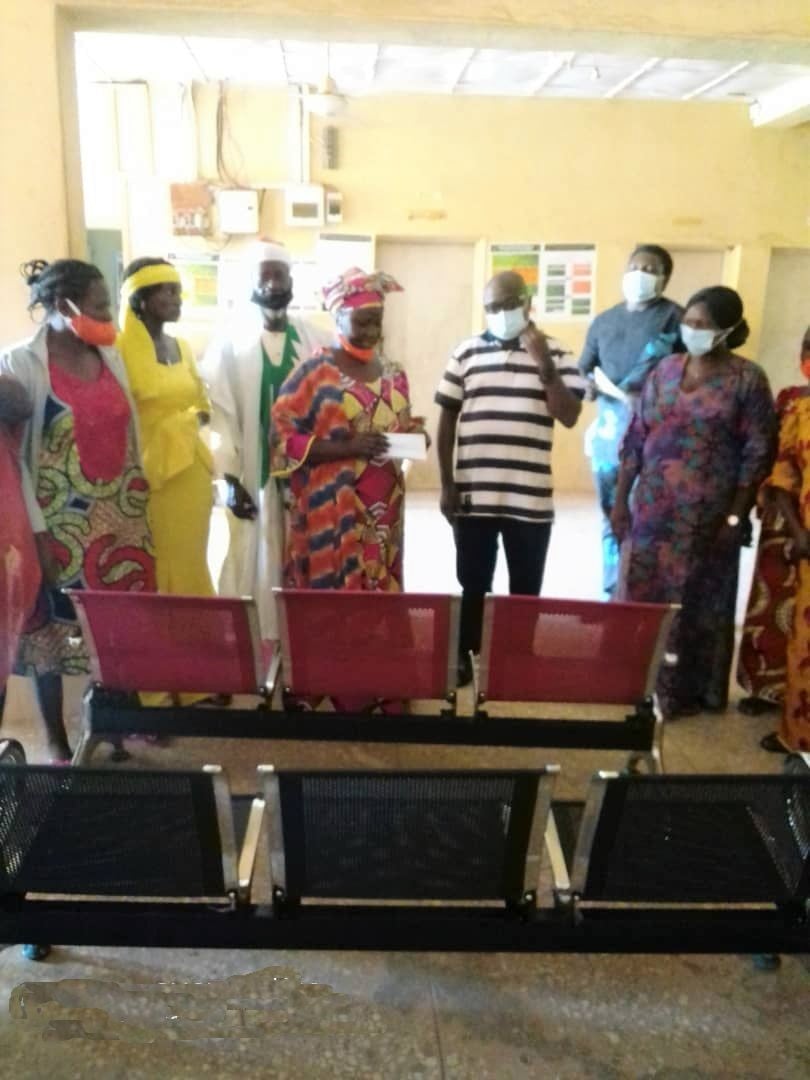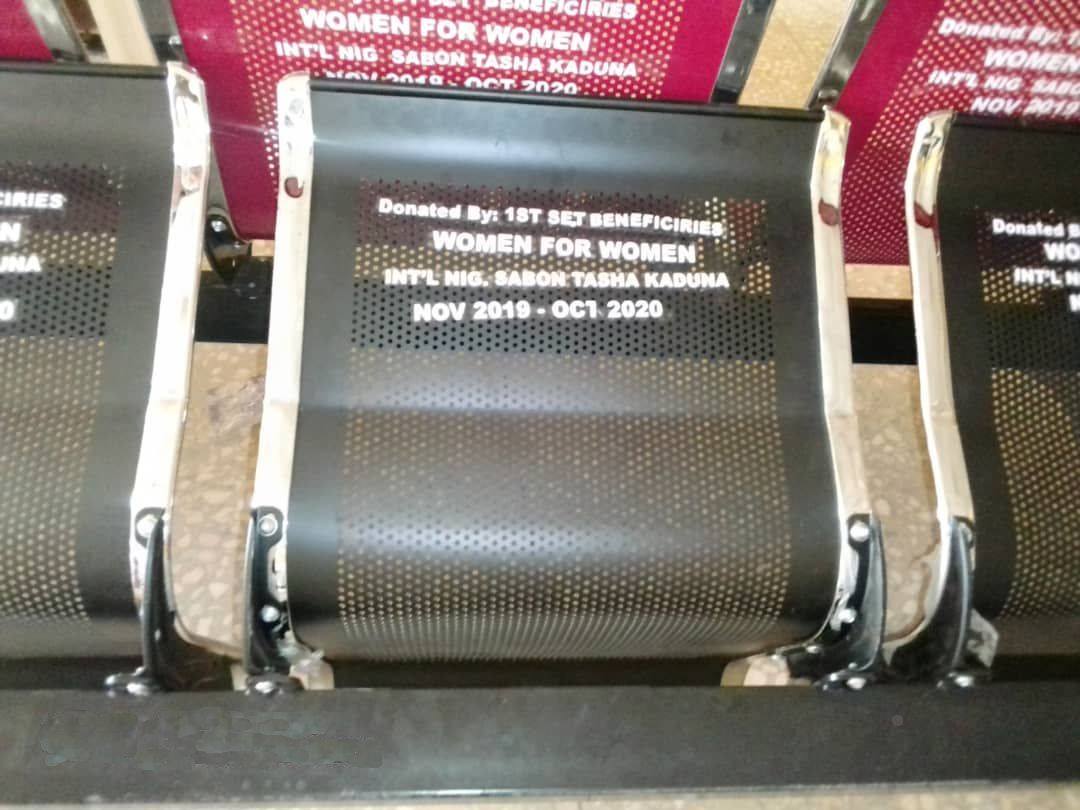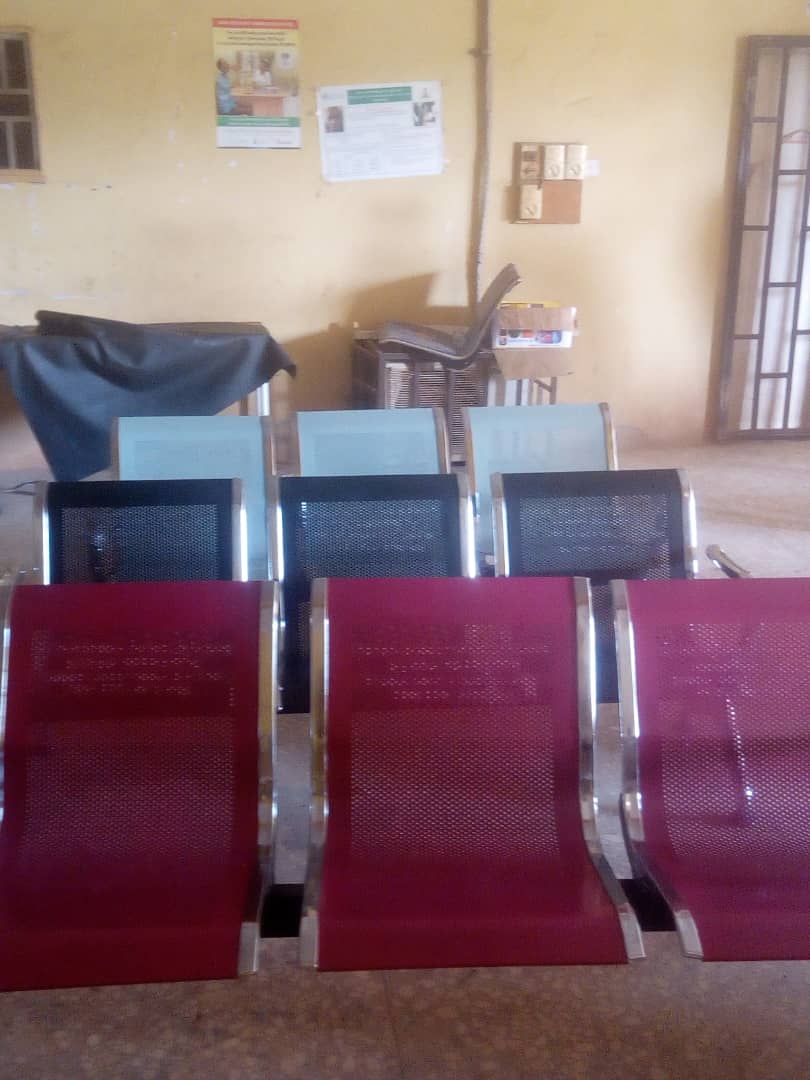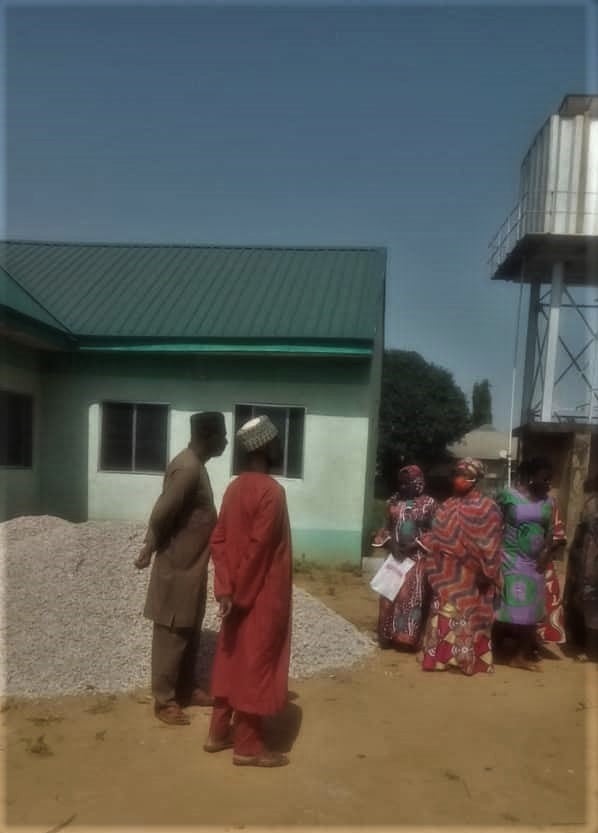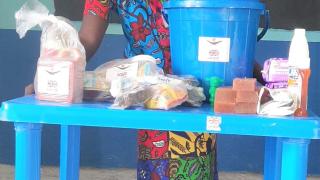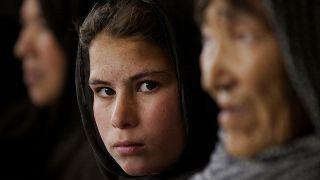"We give because we care enough": COVID-19 spreads kindness in Nigeria
On World Kindness Day, a group of women in our programme in Nigeria show us how compassion can make the world a healthier, happier place.
The women we serve in conflict-affected countries have been dealing with multiple crises and hardships since before the pandemic hit. Poverty, gender inequality and violence pose constant threats to their lives and livelihoods, often leaving them isolated or ostracised. They know better than anyone the importance of solidarity in the face of adversity.
That’s why our 12-month training programme focuses on fostering friendships and strengthening support networks: because we know that connecting to others is a vital component of women’s social and economic empowerment.
Small acts of kindness and sisterhood can make a world of difference to someone who is struggling - and they play a critical role in creating healthy, resilient communities.
One particularly inspiring example comes from a group of women participating in our programme in Kaduna state, Nigeria. The 25 women from Sabo community have taken the initiative to support vulnerable members of their community and improve access to essential services during the pandemic.
With COVID-19 creating severe disruptions to agriculture and supply chains, millions of the poorest Nigerians are facing shortages and rising prices for basic necessities. During the lockdown earlier this year, a survey of our programme participants in Nigeria revealed that 75.6% were experiencing reduced income due to the pandemic while 23.7% were no longer earning anything. In addition, 30% of women surveyed reported not having enough to eat, while 64% said that they only ‘sometimes’ had enough food.
Witnessing these increasing levels of hunger and deprivation, the Sabo women’s group pooled resources to buy essential supplies to support five widows from their village. These packages included soap, grain and packets of seasoning. Some group members contributed money to buy the items, while others donated maize from their own supply.
The women said they were inspired by their Women for Women International supporters, who provided financial assistance to help fund their training, even though they did not know them
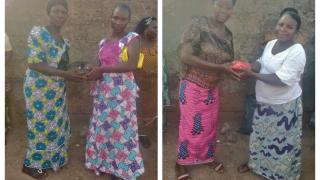
During the COVID-19 lockdown, the Sabo women’s group pooled resources to buy essential supplies for five widows from their village.
One of the group members, Halima, told us: “We don’t give because we have enough, but because we care enough.”
We don’t give because we have enough, but because we care enough.
Continue reading
We are thrilled to announce Clarissa Ward, CNN’s chief international correspondent, as our newest Ambassador. Here she shares her advice for staying connecting and using your voice to create change.
On Global Handwashing Day, we’re celebrating women who are leading the fight against COVID-19 and other life-threatening diseases, by championing hand hygiene.
Since the Taliban’s return to power in Afghanistan in August 2021, Afghan women have experienced profound changes in their daily lives. The de facto government has reinstated many restrictions, severely limiting the rights and freedoms of women and girls.
Yet, in the face of these challenges, Afghan women have shown extraordinary determination and strength, finding ways to resist and adapt. Here, we explore five significant ways their lives have changed, highlighting both the difficulties they face and their ongoing fight for their rights.

